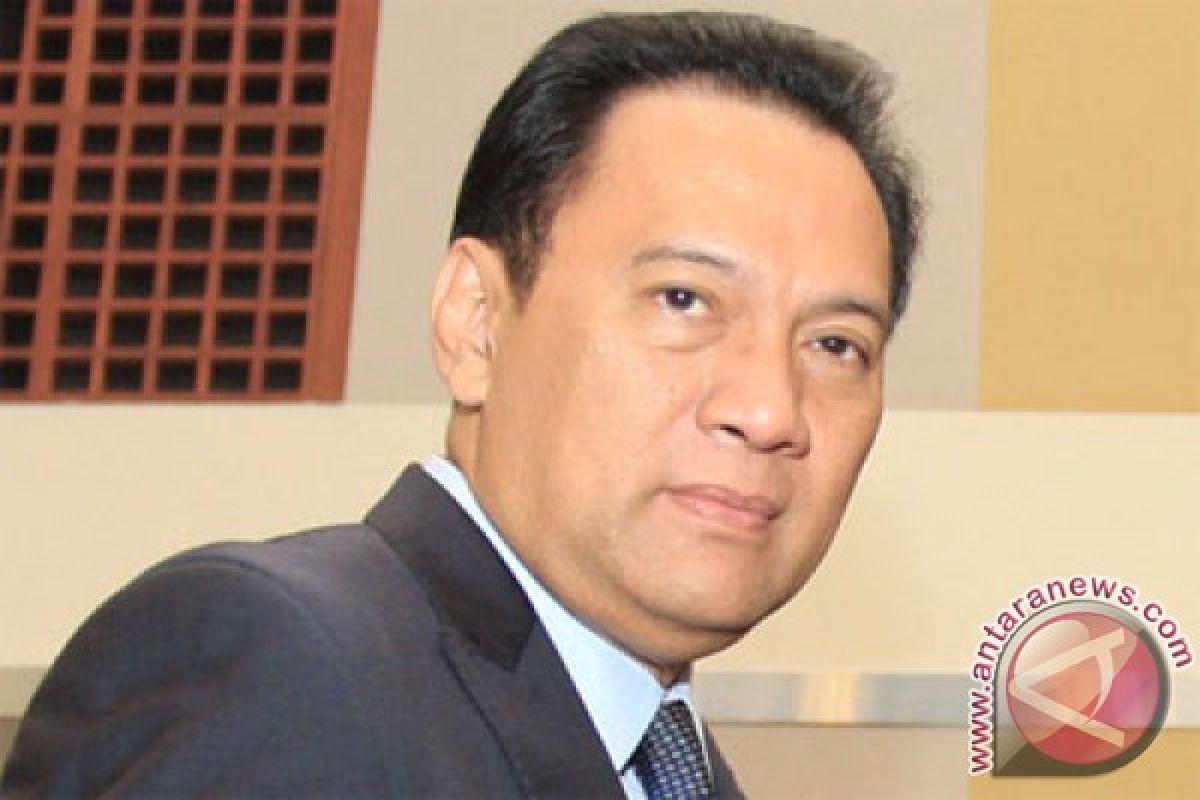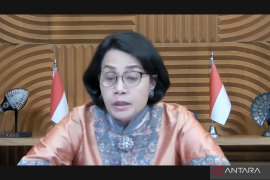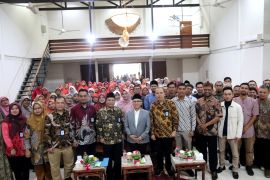"I do not agree with the opinion that the Indonesian economy is overheating," Finance Minister Agus Martowardojo said.Jakarta (ANTARA News) - The Indonesian government is hoping that the country`s economic growth rate, which continues to remain strong in spite of the global economic recession and the lack of economic growth in Europe, is not floored by an increase in the rate of inflation, which could lead to the economy overheating.
It is feared that the government`s plan to raise basic electricity tariffs by 15 percent next year could generate a year-on-year inflation rate of 5.1 percent. Moreover, the August inflation rate of 0.95 percent is already higher than the government`s earlier expectation of between 0.7 and 0.8 percent.
As a result, the country's central bank, Bank Indonesia (BI) plans to examine the impact that the basic power rate hikes could have next year.
However, the Finance Minister pointed out that at present the Indonesian economy is not experiencing overheating, and that relatively high economic growth is likely to be followed by a manageable inflation rate.
"I do not agree with the opinion that the Indonesian economy is overheating," Finance Minister Agus Martowardojo said on Tuesday.
He pointed out that economic overheating can only take place if there is fast economic growth, which is accompanied by a high inflation rate. Indonesia is not facing such economic conditions, the finance minister asserted.
"Europe is experiencing negative economic growth or recession. But, the Indonesian economy grew by 6.3 percent in the first quarter and 6.4 percent in the second quarter, and the rate of inflation is still under control, as it is still less than five percent," Martowardojo pointed out.
Credit expansion by 26 percent per annum has also been recorded and it is expected to continue increasing, which will boost investment and raise working capital.
"The minister also noted that imports of capital goods generated an investment growth of 28 percent in the first semester of this year.
"We are in the process of raising credit expansion further, and will keep track that it is only used for productive purposes. Credit extended for investment and working capital will also be monitored," Martowardojo stated.
He added that while other countries are struggling to boost their economic growth, the growth of investment in Indonesia has remained relatively good. Over the past three months Indonesia has imported a lot of fuel oils and capital goods, which are needed for advancing investment.
However, Martowardojo admitted that a high trade deficit is not good for the current account balance, but appreciated the decline in the country`s trade deficit registered in July this year.
"We had a trade deficit of US $1.32 billion in June, which was cut by US $176.5 million in July. We are grateful for this reduction and it is evident of the efforts made by the Indonesian government to keep its current account balance sound," the finance minister added.
Besides, the government is continuing to monitor the uncertain global economic conditions, and keeping a tab on its macro-economic indicators so that Indonesia is able to avoid being directly impacted by the European economic crisis.
"If any economic turmoil takes place, it will become difficult for the government to take a decision and plan ahead. So the government is continually paying attention to the inflation and currency exchange rates, to ensure that the economy functions smoothly, even if there are temporary fluctuations," Martowardojo stated.
Positive economic indicators, including the country`s current foreign exchange reserves being pegged at US $108 billion, are bound to keep the Indonesian economy from overheating, he said.
"This also shows that we are in complete control of our economy and not overheating," the minister said.
But the government`s plan to raise electricity tariffs by 15 percent is still expected to boost inflation by 5.1 percent.
While the central bank studies the impact this move will have on inflation, power rates are estimated to automatically appreciate on a quarterly basis till they touch 15 percent by the end of 2013.
"I will have to assess this measure's direct and indirect effects to begin with," Bank Indonesia Governor Darmin Nasution stated on Tuesday.
The government announced recently in the 2013`s draft stage budget that it is proposing to the Parliament an automatic hike in power rates of about 3 percent to 4 percent for each quarter next year, so that by the end of 2013 the cumulative electricity tariff increase touches 12 percent to 15 percent.
Nasution pointed out that he was still unsure about the level of inflation this rate hike could create. Therefore, the central bank will study it and assess the impact it is likely to create.
Meanwhile, Perry Warjiyo, the director of economic research and monetary affairs at BI, said Bank Indonesia has predicted that the inflation rate will jump to 5.1 percent if the government goes ahead with the increased power rate, as this will immediately result in a spike in inflation by 0.3 percent.
He added that initially BI had predicted 2013`s inflation rate at 4.8 percent, but the boost in electricity tariffs will augment it further to 5.1 percent.
Warjiyo stated that the policy to raise electricity tariffs is still a proposal and has not been deliberated upon by the House of Representatives (DPR), so that its realization is still uncertain.
"The proposal is still part of the draft state budget. It can only be implemented as a law if the state budget for 2013 is approved by the House," he said.
Finance Minister Martowardojo said that the proposal of hiking electricity tariffs is aimed at slashing government subsidies, which now amount to Rp316 trillion. The reduction in power subsidies is expected to help finance infrastructure development. Around Rp100 trillion will be allocated for the electricity sector, while the rest will be used for fuel oils.
He added that supplementary funds of around Rp12 trillion can be raised every year for infrastructure projects, through the proposed hike in electricity tariffs.
"Assuming that the electricity tariff is raised by 3 percent to 4 percent every quarter starting January 2013, the government can have at its disposal extra developmental funds of around Rp12 trillion a year."
The current allocation for infrastructure in the draft state budget of 2013 has been set at Rp190 trillion.
State-owned power firm PLN in its capacity as the operator of the national electricity business also said it hopes that the government`s plan to boost power rates, which is aimed at increasing investment and expanding power supply coverage nationally, is realized soon.(*)
Reporter: Andi Abdussalam
Editor: Heru Purwanto
Copyright © ANTARA 2012












